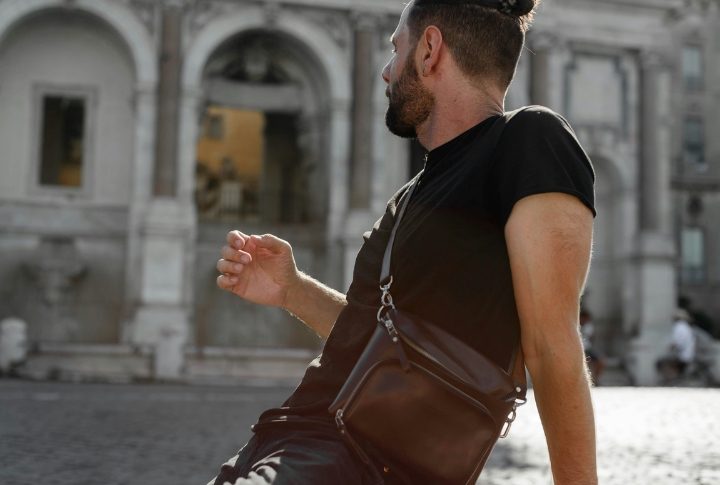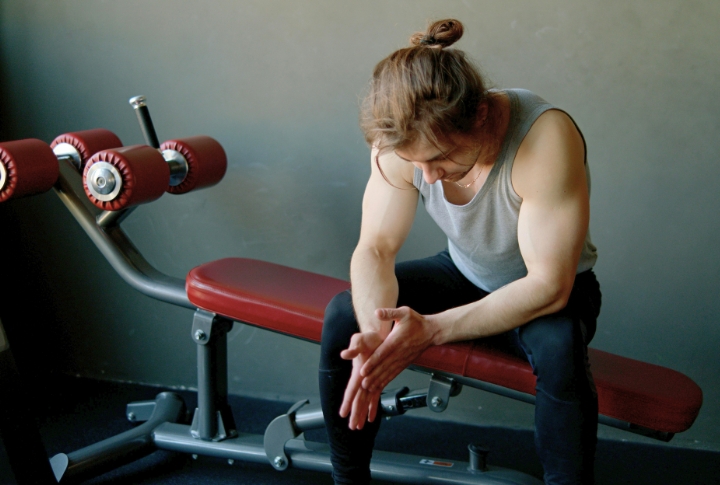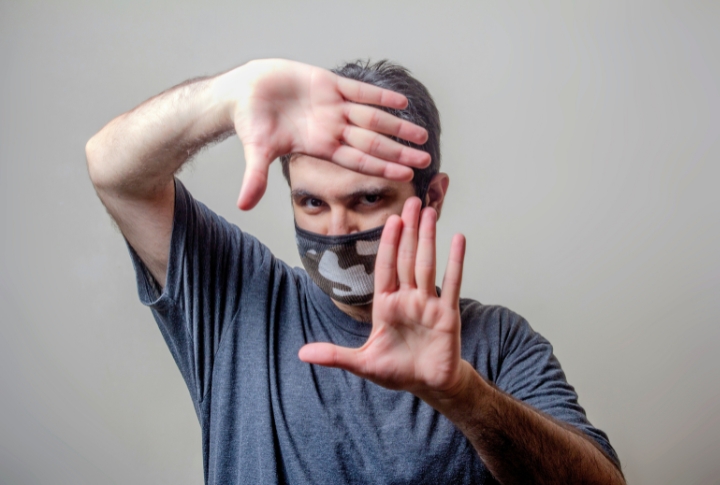
Over time, ideas of masculinity have evolved. Where physical strength and stoicism once defined manliness, today’s culture increasingly values emotional openness and authenticity. Still, certain behaviors that fall outside traditional norms are sometimes labeled as “less masculine.” It’s important to remember these are just social perceptions—not measures of personal worth. Here’s how society often makes those judgments.
Neglecting Posture

Slouched shoulders? People might read it as hesitation or insecurity. Standing tall, on the other hand, is still linked to alertness and confidence. The world tends to equate upright posture with self-assurance and strength, even if the truth runs deeper.
Wearing Excessive Accessories

Society often associates simplicity with confidence. And when a man wears too many rings or chains, attention tends to fall on the accessories rather than the person. A single, understated piece is seen as a strength, while excess can be read as trying too hard.
Poor Grooming Habits

Neatness is associated with discipline, and small details—like tidy hair or a clean shave—are taken as signs of attentiveness. Even though grooming is personal, it’s often one of the first markers judged. Unkempt hair or neglected grooming may signal carelessness to others.
Wearing Ill-Fitting Clothes

When a man wears something that’s either too loose or too tight, society often links it to indifference. It’s those tailored or well-fitted outfits that point to composure. Sharp lines and clean fits are now signs of reliability and self-awareness.
Avoiding Eye Contact

Eye contact is one of the strongest signals of confidence in social settings. Research in the Journal of Nonverbal Behavior shows that those who maintain it are often rated as more competent and assertive. Avoiding it, however, is still read as uncertainty, especially if you’re a man.
Neglecting Physical Fitness

Even today, physical strength circles back to masculine energy. So, men with a sedentary lifestyle might face judgment as most people see it as a loss of vitality. Fitness is read as both physical presence and mental toughness in the cultural imagination of masculinity.
Unkempt Footwear

Shoes carry symbolic weight. Wear them torn or dirty, and it will scream neglect. On the other hand, polished, well-chosen shoes suggest that a man cares about his presence and has control. Society notices these details quickly and places them as markers of personal standards.
Dramatic Gestures

The world often sees overly exaggerated gestures as a theatrical act and labels that person as too dramatic. And if you’re a man, you draw even more attention to yourself, taking it away from the message itself. Society tends to value controlled, deliberate gestures as a sign of credibility and authority.
Lack Of Purposeful Conversation

When words are measured and intentional, they’re often received as strength. Purposeful speech creates an impression of calm confidence. But aimless chatter? Most people see it as nervousness. What’s said matters less than how it conveys self-possession.
Constantly Seeking Validation

In cultures like the U.S., self-reliance is still strongly tied to masculine identity. If a man looks for approval too often, it may be interpreted as insecurity rather than decisiveness. Even small acts of seeking reassurance can carry that weight in perception.
Poor Handshake

First impressions begin with a handshake, and society still places meaning there. Research from the University of Alabama found that people with firm handshakes were viewed as more authoritative. For men, especially, a weaker grip means low confidence before he even speaks a word.
